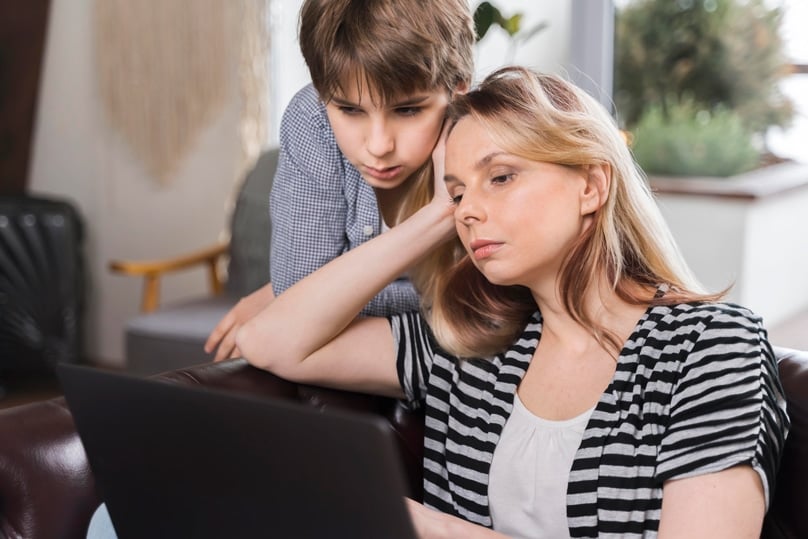
By Barbara Perry
Being a parent or caregiver today is the hardest job there is. As the mother of five boys, I know it as much as anyone.
Our love for our children is clouded with worry for the world they are moving into. It is so different from when we grew up.
Many of us would remember innocent times playing in the backyard, helping mum in the kitchen, dad tinker in the garage or getting lost in a good story.
But today, addiction to screens and devices has taken over in ways that parents can feel helpless to control.
At its best, the internet is a wonderful tool. As we saw during the pandemic, social networking platforms allow unparalleled connection.
Yet the digital world is also a source of ideas and imagery that harms children’s psyches and proliferates at lightning speed.
Pornographic content can be downloaded intentionally, pop up from nowhere or be stumped upon simply by clicking on a link.
This year, a report by the e-Safety Commissioner revealed that 75 per cent of Australians aged between 16 and 18 had viewed online porn.
One-third of those surveyed recalled having first seen explicit content before the age of 13 and 8 per cent when younger than 10.
These results broadly mirror another recent study by the Children’s Commissioner for England, which found that almost 80 per cent of young people watching porn had been frequently exposed to violent material depicting coercive, degrading or painful sexual acts.
Both studies make clear that the contexts go well beyond dedicated adult sites. More children are encountering porn on group chats and Twitter, Instagram and Snapchat.
And really, as families know, the internet is merely the tip of our increasingly sexualised society.
From television shows to glossy magazines, gym culture and rap song lyrics, young people are conditioned to accept the objectification of the human body.
In the words of the Children’s Commissioner for England, “we find that pornography exposure is widespread and normalised to the extent that children cannot opt out.”
The impacts we can only imagine. They include unrealistic notions of body image. A corroding of conscience.
And a distorted view of human relationships, one focused on sexual gratification, that confuses love with lust and makes it harder to relate to others in a mutually respectful and caring way.
Troublingly, the literature also links pornography with the formation of attitudes and behaviours that can lead to gender-based violence and abuse.
Stronger regulation is definitely needed to make the internet safe for children. Countries such as France, Germany and the United Kingdom are contemplating introducing tougher requirements on the online industry beyond asking users to self-declare their date of birth.
In Australia, the e-Safety Commissioner has recommended a trial of age verification technology.
This is the so-called “porn passport” that would require users to prove their age through anonymised electronic access tokens.
Last month, the federal government confirmed it would not immediately embrace this path.
Instead, it plans to work with internet service providers, websites and social media companies on voluntary codes to reduce harm—including greater use of parental education and internet filters.
While additional urgency from the government would be welcomed, shouldn’t it also be acknowledged that we cannot outsource our fundamental responsibilities as parents?
It’s time to build our relationships with our children, recognising we are their first and primary educators.
Let’s find the courage to have honest conversations at home around hard topics involving relationships, sexuality and responsible technology use.
If the task may seem daunting, perhaps we can take comfort in Catholic teachings that relationships and sexuality are gifts. They are intrinsic to what it means to be human, part of the divine plan of creation and wider purpose for our lives.
As Catholics and in our schools, our focus is increasingly on marrying children’s physical, social, emotional and spiritual wellbeing. So it should be around the dinner table as well.
This starts with the foundational principle that we are all created in the image and likeness of God—and we are loved by God. Our beauty, worth and dignity are innate.
It can be a minefield striving to parent in today’s world. Yet rather than feel inured to the state of our culture, my hope is we can bear witness to our children.
Encouraging their self-worth so they have respectful, flourishing relationships and make healthy and positive choices throughout their lives.
Barbara Perry is the Manager of Family Wellbeing and Education, Sydney Catholic Schools
